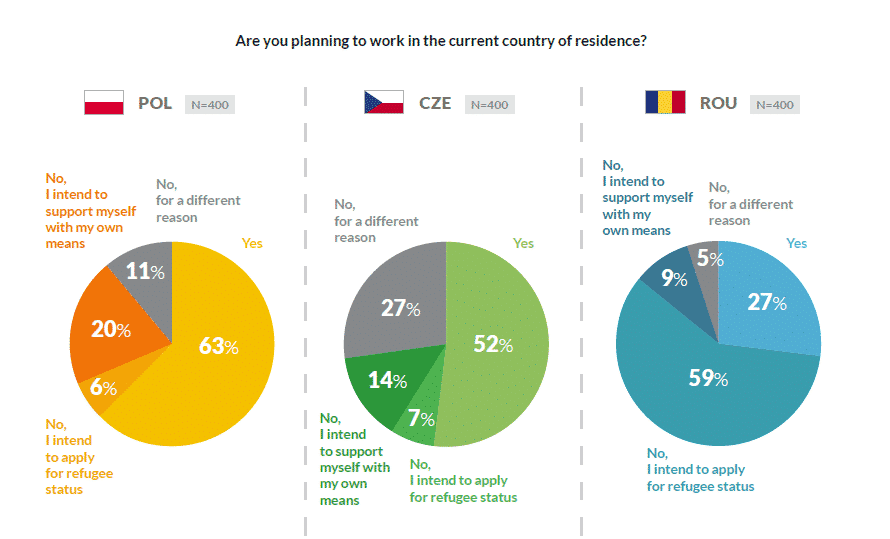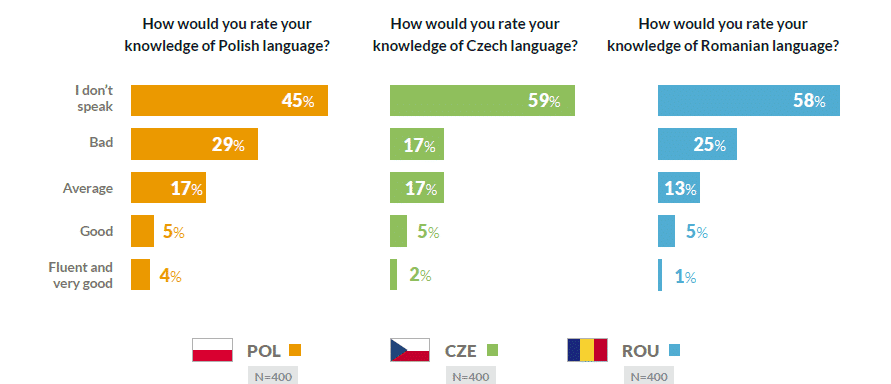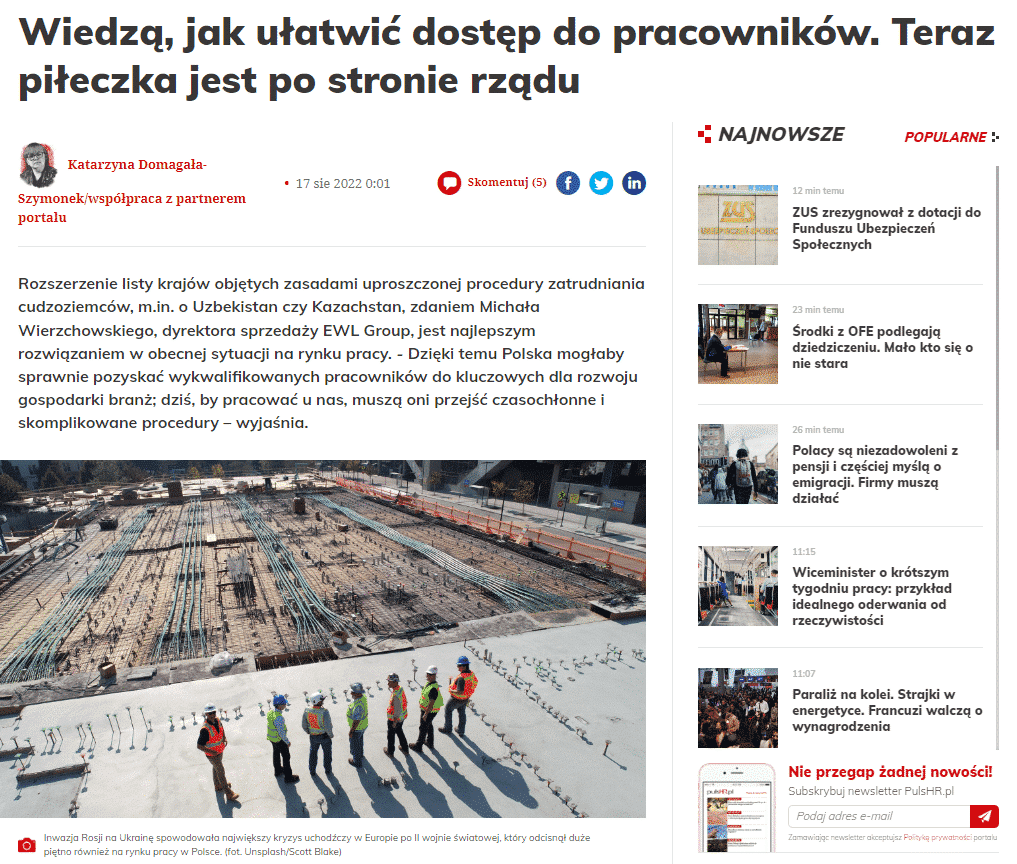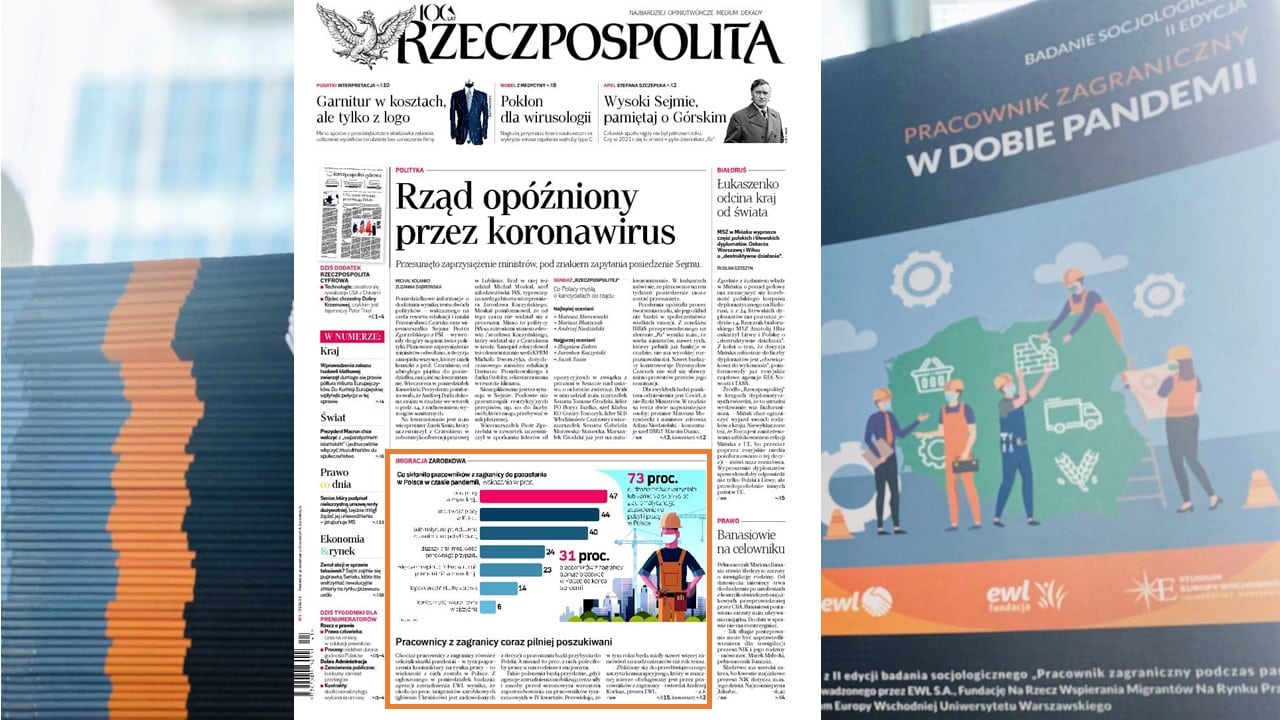Extending the list of countries covered by the simplified procedure for employment of foreigners to include Uzbekistan and Kazakhstan, among others, is the best solution in the current situation on the labour market according to Michał Wierzchowski, Sales Director at the EWL Group. ‘Thanks to this, Poland would be able to smoothly acquire skilled employees for industries that are essential for the development of the economy; now they have to go through time-consuming and complicated procedures in order to work in Poland’, emphasised Michał Wierzchowski, Sales Director at the EWL Group, in an interview for the PulsHR web portal.
After the Russian aggression against Ukraine more than 5.5 million Ukrainian refugees crossed the Polish border. About one third of them stayed in Poland and have plans to stay for longer. What impact will this have on the labour market in the coming months and in 2023?
Michal Wierzchowski, Sales Director at the EWL Group: Russia’s invasion of Ukraine caused the largest refugee crisis in Europe after the Second World War, which also left a big mark on the labour market in Poland. By supporting refugees from Ukraine, EU countries have opened their labour markets to them. According to the latest estimates of the Ministry of Family and Social Policy, so far more than 380,000 refugees have taken up employment in Poland on the basis of the simplified procedure.
At the same time, we must remember that the vast majority of them are women.
Exactly, and this is not insignificant for the labour market. It is a potentially large influx of hands, but in this case, it should be mentioned that these are migrants with a different profile than before. According to our study, more than 60 per cent of them have a university degree – a much higher number than among labour migrants from Ukraine before the war. They are often highly skilled professionals, representatives of the trade and services sector and employees in the education sector, who, according to our survey, came primarily to big cities.
Despite the arrival of refugees from Ukraine, there is an acute shortage of workers, especially representatives of professions in which, until now, men have mainly worked. This is a difficult situation for employers facing staff shortages, but also for the labour market as a whole, which has been facing high staff turnover for several months.
The instability of the market is exacerbated by the increasing outflow of Ukrainian refugees from Poland. Already more than 3 million Ukrainian citizens that fled the war and found shelter in Poland have decided to return to their country. Currently, more people are returning to Ukraine than are coming to Poland, and this number is set to increase. Our labour market is changing with the war, and this war, as we know, is not over yet, so further changes are inevitable.
What are the main needs of the refugees? According to the study ‘Ukrainian refugees in Poland, the Czech Republic and Romania’, 2/3 of the refugees want to take up employment in Poland? What needs to be done to make it easier for them?
There are two issues of utmost importance. Given the fact that the largest group among Ukrainian refugees are women with children, the first focus should be on meeting the needs arising from childcare. It is the proximity to schools or kindergartens that determines the choice of temporary residence as well as of the workplace of Ukrainian women.

According to our study, almost half, 45 per cent, of Ukrainian refugees residing in Poland do not speak Polish or speak it very poorly. This is another barrier that needs to be overcome in order to increase professional activity among the refugees in Poland and subsequently bring them into the labour market. Accelerated Polish courses are a solution that would have scalable impact.
Nearly 380,000 refugees have already found work in Poland, while unemployment is at a record low and the number of vacancies is at a record high. How can we explain this?
We have the lowest unemployment in Poland in over 30 years – in July it was 4.9 per cent. There are 800,000 unemployed people in Poland, the lowest figure since 1990, and at the same time we are seeing a record high number of vacancies – 160,000.
This situation is driven by two factors. The first is the peak season for labour when there is an increase in the employment of seasonal workers, e.g. in the construction industry or agriculture, which translates into lower unemployment.
The second factor is the acute shortage of male workers virtually everywhere – from the construction industry to automotive or logistics sectors, which has already initiated a ‘wage war’ among employers looking for workers.
Can it be said that the Polish labour market has coped with the shortage of men?
It is very clear among our clients that the demand for men is higher than, say, three months ago. What is more, we expect this shortage to grow. Unfortunately, the Polish market currently has no alternative to the shortage of men who have left for Ukraine.
Two scenarios are possible. The first one, more likely yet definitely unfavourable for the employers, is that they will be further forced to increase wage rates for workers in order to attract or retain them. The second one, linked to a political decision, is that more countries will be introduced to the simplified procedure for employing foreigners.
If you were to advise the team drafting the amendment to the Act on Foreigners, what would be included in the amendment?
One of the most important solutions, already mentioned, which would have a positive, long-term effect on the labour market, would be to absorb into the Polish market workers from Central Asia, e.g. Uzbekistan, Kazakhstan or Kyrgyzstan, whose citizens speak Russian. Currently, the simplified procedure for employing foreigners applies to workers from six countries: Ukraine, Belarus, Russia, Moldova, Georgia and Armenia.
If more countries were included, Poland would be able to attract skilled professional to industries that are essential for the development of the economy. There are already many citizens of, for example, Uzbekistan working in Poland, who found employment as drivers for well-known haulage companies. According to statistics, there are approximately 6,000 Uzbeks and Kazakhs in Poland combined, which is a drop in the ocean with regard to the current needs of the labour market.

Until now, these people worked in Russia, but because of the war and the economic situation, they returned to their countries. The waiting time in Poland for employees from these countries is long and difficult in light of the current procedures related to the legalisation of residence and employment. However, if the government decided to liberalise the regulations, employers would be able to legally hire, in a short period, foreigners from other countries just on the basis of the employer’s declaration of entrusting work.
Germany is working on another liberalisation of employment regulations for foreigners, hoping to attract more professionals from outside the EU. Do Polish employers, who are also looking for skilled workers, have anything to fear?
It all depends on how this liberalisation is applied. For example, in 2019 we feared that many Ukrainian citizens working in Poland would leave for Germany, because the government there announced that it would open its market to workers from Eastern Europe. However, it turned out that the liberalisation was moderate, many restrictions were left in place and, as a result, the scale of the departure of Ukrainian citizens was small.
If this time Germany, where there is a shortage of around 1.7 million workers, opens its market to foreigners more – and we can hear that new liberal regulations are being discussed – it could be a big competition for Poland and the entire European Union, which is facing a shortage of both specialists and production workers. Looking long term, we need to be prepared to fight for the worker.
Let us return to the Polish market and the problem looming on the horizon. In all likelihood, we will face another wave of COVID-19 in the autumn. The Polish government says that it is preparing for it on the medical front. But is the Polish economy ready for it? How will it be affected?
In recent weeks, there has been increasing talk of a possible reinstatement of covid restrictions. Having learnt from the experience of the first lockdown, we know that another wave of infections has a direct impact on the transition of employees in many sectors to remote work. For employers this means staffing problems or increased turnover. Working parents then make greater use of time off work to care for their children in the event of quarantine or closing schools.
We do not expect a large-scale lockdown, but reintroducing quarantine requirements for incoming foreigners would significantly lengthen the process of their employment.




